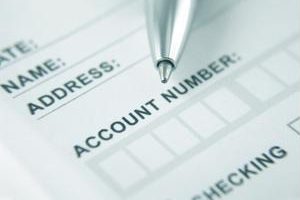
Entrepreneurs are known to wear many hats, handling all kinds of tasks to get their business started and running successfully. It's typical to have to mix roles, to pitch in and do whatever's needed. But finances shouldn't be in that mix. Maintaining separate finances — even in the early days of starting a business — is essential. Here are some key tips for how you can keep your personal and professional finances separate, mitigating risk and making it easier to ensure good financial and tax planning.
Tracking expenses
You can probably chat easily about your outlay of personal and business expenses over the past week. Maybe you can look at bank statements from the last two months and recall which expenses were for business and which were personal. But what if you purchased food and beverages for a work event? Do you remember which grocery visit was for work and which was for personal items?
Even if its early days in your business, it's essential to utilise a separate bank account and credit card to cover your professional expenses. This keeps things separate for both business planning and tax strategy purposes. Separate accounts also better enables professionals like us to give you sound business planning advice.
Go legit
Many small-business owners and startup founders tell us they feel much better about their professional endeavours after setting up boundaries between their personal and work-related finances. Seeing their business as separate from themselves gives it some extra credence.
According to QuickBooks, the most popular structures for small businesses in Australia are:
- Sole trader
- Company
- Partnership
- Trust
Choosing the right one has tax implications, so do consult with your accountant about the ideal structure for you. And remember — each business enterprise is different. What worked for a different business of yours might not be appropriate here.
Mitigate risk
When there's no clear delineation between your personal and professional finances, you put the former at risk. Any litigation regarding work matters may put your personal assets at risk if they aren't separate from the business.
A good accountant can help you draw this important boundary.
Plan to pay yourself
As your business develops, you will begin to constantly asses expenses and income. Once you're up and running, patterns will emerge and you'll be able to project your earnings and expenses for the future. Done thoughtfully, this will allow you to pay yourself a salary. Paying yourself regularly is the mechanism by which you can reap personal rewards of running a successful business — while maintaining appropriate separation from your business.
If you're looking for strategies to easily separate business and personal finances, WMC Accounting can help you identify some options. We are here to enable you to make the best decisions for the future of your business. Contact us today to learn more so we can begin assisting you.



